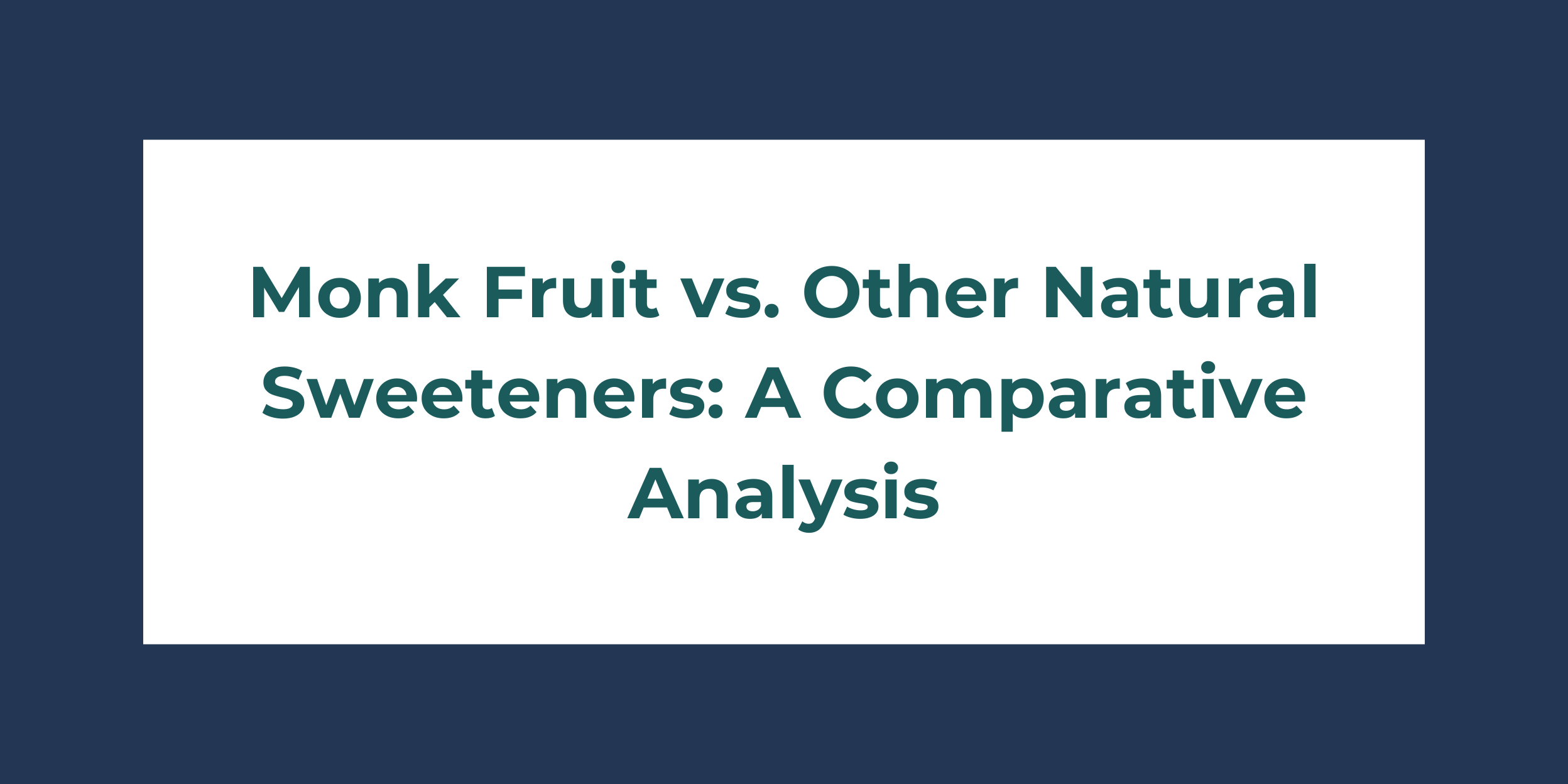The pursuit of healthier sugar alternatives has led to the rise of natural sweeteners.
Among these, monk fruit has garnered attention for its unique benefits.
This article compares monk fruit with other popular natural sweeteners, focusing on their taste, health benefits, applications, and potential drawbacks.
Monk Fruit: An Overview
What is Monk Fruit?
Monk fruit, also known as Luo Han Guo, is a small green gourd from southern China.
It has been used in traditional Chinese medicine for centuries.
The sweetness of monk fruit comes from natural compounds called mogrosides, which are 150-200 times sweeter than sugar but contain no calories.
Health Benefits
Monk fruit sweeteners are non-glycemic, meaning they do not raise blood sugar levels, making them suitable for diabetics.
They also contain antioxidants, which may help reduce inflammation and protect against certain diseases.
Additionally, monk fruit has shown potential antimicrobial properties.
Stevia: The Popular Rival
What is Stevia?
Stevia is derived from the leaves of the Stevia rebaudiana plant, native to South America.
It has been used as a sweetener for centuries and is appreciated for its zero-calorie content.
Health Benefits
Stevia is non-glycemic, making it suitable for diabetics.
It contains compounds called steviol glycosides, which are responsible for its sweetness.
Some studies suggest stevia may help lower blood pressure and blood sugar levels in certain individuals.
Taste and Applications
Stevia has a slightly bitter aftertaste, which can be off-putting for some users.
It is commonly used in beverages, baked goods, and desserts.
Blending stevia with other sweeteners can help mitigate its aftertaste.
Erythritol: The Sugar Alcohol
What is Erythritol?
Erythritol is a sugar alcohol found naturally in some fruits and fermented foods.
It is about 70% as sweet as sugar and is often used in combination with other sweeteners to achieve the desired sweetness level.
Health Benefits
Erythritol is non-glycemic and low in calories, making it suitable for diabetics and those on a low-calorie diet.
It does not contribute to tooth decay, unlike sugar.
Taste and Applications
Erythritol has a clean, sweet taste with no aftertaste, making it popular for various food and beverage applications.
It is often used in baking, confectionery, and beverages.
However, consuming large amounts may cause digestive discomfort in some individuals.
Honey: The Ancient Sweetener
What is Honey?
Honey is a natural sweetener produced by bees from the nectar of flowers.
It has been used as a sweetener and medicinal remedy for thousands of years.
Health Benefits
Honey contains various antioxidants, including phenolic compounds, which can help protect the body from oxidative stress.
It also has antimicrobial properties and can soothe coughs and sore throats.
Taste and Applications
Honey has a distinct flavor that varies depending on the type of flowers from which the nectar is sourced.
It is widely used in cooking, baking, beverages, and as a spread.
Unlike other sweeteners, honey contains calories and can affect blood sugar levels, making it less suitable for diabetics.
Agave Nectar: The Controversial Sweetener
What is Agave Nectar?
Agave nectar is derived from the agave plant, primarily found in Mexico.
It is sweeter than sugar and has a lower glycemic index, which has made it popular among health-conscious consumers.
Health Benefits
Agave nectar contains fructans, which may have prebiotic effects and promote gut health.
However, its high fructose content has raised concerns about its potential impact on metabolic health and liver function.
Taste and Applications
Agave nectar has a mild, neutral flavor, making it versatile for use in beverages, desserts, and sauces.
Due to its high fructose content, it should be used sparingly, especially by those monitoring their blood sugar levels.
Comparative Summary
Sweetness and Caloric Content
- Monk Fruit: 150-200 times sweeter than sugar, zero calories
- Stevia: 200-300 times sweeter than sugar, zero calories
- Erythritol: 70% as sweet as sugar, low calories
- Honey: Comparable sweetness to sugar, contains calories
- Agave Nectar: Sweeter than sugar, contains calories
Health Impact
- Monk Fruit and Stevia: Suitable for diabetics, non-glycemic
- Erythritol: Non-glycemic, low-calorie, may cause digestive issues in large amounts
- Honey: Antioxidants and antimicrobial properties, but contains calories and affects blood sugar
- Agave Nectar: Prebiotic benefits but high in fructose, potential metabolic concerns
Taste and Usage
- Monk Fruit: No aftertaste, versatile in various applications
- Stevia: Slightly bitter aftertaste, best blended with other sweeteners
- Erythritol: Clean taste, often used in combination with other sweeteners
- Honey: Distinct flavor, versatile but caloric
- Agave Nectar: Mild flavor, suitable for many applications but should be used sparingly
Conclusion
Monk fruit stands out among natural sweeteners for its high sweetness, zero-calorie content, and health benefits.
While each sweetener has its unique advantages and potential drawbacks, choosing the right one depends on individual health goals, taste preferences, and dietary needs.
Understanding these differences can help consumers make informed decisions about incorporating natural sweeteners into their diets.








